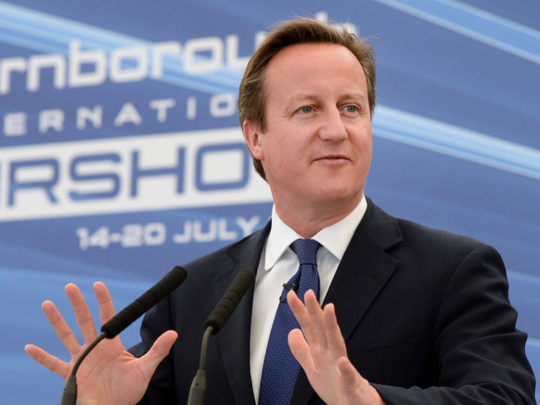
The role of convention is underrated in politics. David Cameron reshuffled his cabinet on Monday for no deeper reason than it is what British prime ministers are meant to do. He is allergic to such tinkering and does not relish difficult conversations with colleagues but, less than a year out from a general election, tradition called for one last arrangement of personnel. A creature of habit, he is observed the ritual.
If this feels like a reshuffle for no good reason, its content could be hollow, too. Ministers used to be moved around for some express purpose grounded in ideology or competence. Margaret Thatcher got rid of the “wets” who stood athwart her mission to smash postwar corporatism. Tony Blair sent Alan Milburn to reform the National Health Service, and John Reid to bring some semblance of order to the Home Office. When Gordon Brown wanted political counsel and executive grip, he restored the cabinet career of Peter Mandelson.
This reshuffle is mainly symbols and signals. Its purpose is to “show” various things to various constituencies. It is meant to show female voters that the Conservative party is not a woman-free zone: able MPs such as Liz Truss and Esther McVey have risen. It is also meant to show rightwingers that Cameron is willing to give them the time of day. The return of Liam Fox, who lost his job as defence secretary in 2011, would be a gesture to Thatcherites, some of whom cheer the surprising departure of William Hague, an able foreign secretary they came to mistrust as insufficiently eurosceptic.
These may be worthwhile aims. The promotion of women at the expense of men who have pottered around government in a state of clubbable semi-retirement in recent years, such as Ken Clarke and Sir George Young, is painfully overdue. But the aims have more to do with broadcasting a message than governing. The reshuffle does not reveal much about the intellectual direction of the Tory party, or even the domestic policies of a second-term Cameron administration.
There is no philosophy or habit of mind that unites the people being promoted, or those being cashiered. Peruse the list of the MPs said to be in the ascendant and it is hard to associate many of them with a particular cause or specialism. There is little curiosity about which woman stands for what, only a vague hunch (bordering on condescension) that they should be more prominent.
There is not much wrong with this mania for signal-sending. Had the Tories worried less about doctrine and more about the gut impression they create, their electoral performance in recent decades might have been less dire.
But voters are also more likely to re-elect a government if it looks like it has unfinished business and some clarity about what that business is. At the moment voters know only that another Tory-led government would cut spending and do something about Europe. The party’s plans need elucidation — not in detail but in direction — and a pre-election reshuffle is supposed to help with that. This one suggests no discernible direction.
Some of this fogginess is down to Cameron himself. His reluctance to commit to any world view is prudent and very English, but it makes it hard to know where he is going. We have given up speculating on which “Camerons” will be promoted in reshuffles because we no longer know what a Cameron is, and whether he is any closer to them than he is to the orthodox right, or merely equidistant.
The contrast is not only with previous prime ministers but also with his possible successor.
We know where Ed Miliband stands. We know that the opposition Labour leader aspires to break a liberal economic consensus that is into its fourth decade. We know what he defines himself against (the supposed nihilism of Blair’s liberal outlook) and the people he regards as his own (the market-interventionist “soft left”). Of course, his reshuffles preserve Blairites here and there and give room to the ideologically nonaligned but, were it not for political realities, we know what he would like to do.
Still, the Tories’ ambiguity goes deeper and wider than Cameron. The party as a whole has lost the ability to talk about its future other than in terms of personalities. When two or more Tories convene in Westminster, they blaze through the pleasantries to start debating whether Boris Johnson, London mayor, or Theresa May, home secretary, or George Osborne, chancellor of the exchequer, or some other pool soul, will lead them in a few years. What these individuals would actually do with power, and where they stand, are not just secondary questions — they are absent from the conversation. The obsession with the next leadership contest is marked by near-total indifference to its ideological content. It is all about who might symbolise what to which group of voters.
In other words, the Tories want a shortcut to popularity in the form of winning personalities. Anything to avoid arduous change and reflection. It is a forgivable hope but probably a fanciful one. In a sense, the party got the reshuffle it deserved.
-Financial Times












